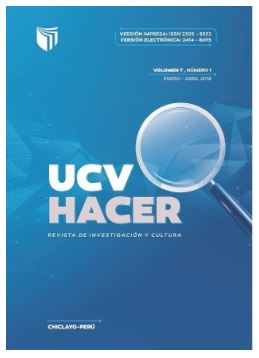Inteligencia emocional y desarrollo de las primeras habilidades sociales en sexto grado
Palabras clave:
Inteligencia emocional, Habilidades sociales, Estrategias metodológicasResumen
El programa de inteligencia emocional está orientado a mejorar las primeras habilidades sociales de los alumnos de Educación Primaria como una alternativa de solución para brindarles oportunidades de éxito a lo largo de su vida. Actualmente, en la Institución Educativa María de Lourdes del distrito de Pomalca existe escasa dedicación en el área de tutoría por reforzar y desarrollar habilidades personales y sociales que les permitan a las alumnas relacionarse de manera adecuada con sus pares. El programa que presentamos también pretende fortalecer la labor tutorial de los docentes a través de estrategias metodológicas contenidas en doce sesiones de aprendizaje, cada una de las cuales se desarrollan siguiendo una secuencia activa de ejercicios donde prima el modelado de la habilidad por el docente y la práctica de las alumnas. Existe la necesidad de desarrollar este tipo de programas en nuestras escuelas para lograr alumnas emocionalmente inteligentes que establezcan buenas relaciones y sepan interactuar de manera positiva con sus semejantes. Aplicado el programa de inteligencia emocional afirmamos que fue muy significativo, ya que, la mayoría de las alumnas se ubican en la categoría alta, es decir que se logró que ellas controlen bien sus emociones y practiquen adecuadamente sus primeras habilidades sociales. Con los resultados positivos de nuestra investigación demostramos la efectividad del programa Inteligencia Emocional, brindando de esta manera a los docentes del país una alternativa de solución para desarrollar las habilidades sociales de las educandas.
Descargas
Descargas
Publicado
Número
Sección
Licencia

Esta obra está bajo una licencia internacional Creative Commons Atribución-NoComercial-CompartirIgual 4.0.










